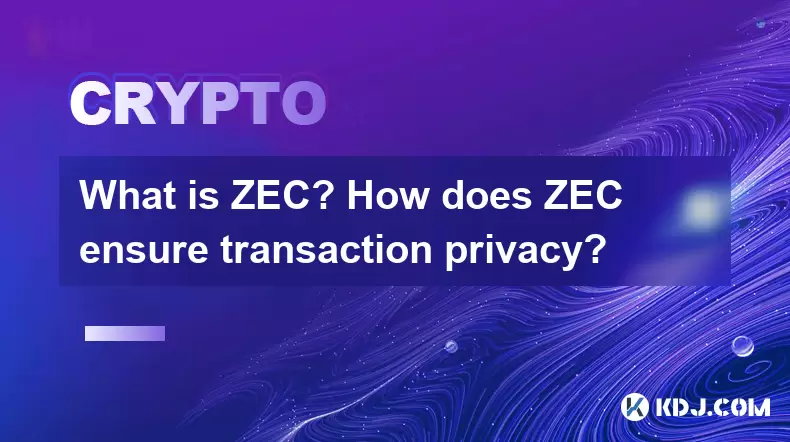-
 Bitcoin
Bitcoin $118300
-3.52% -
 Ethereum
Ethereum $4554
-3.81% -
 XRP
XRP $3.090
-5.78% -
 Tether USDt
Tether USDt $1.000
0.04% -
 BNB
BNB $842.0
-0.27% -
 Solana
Solana $194.6
-3.24% -
 USDC
USDC $0.9998
0.00% -
 TRON
TRON $0.3600
-0.20% -
 Dogecoin
Dogecoin $0.2243
-7.95% -
 Cardano
Cardano $0.9066
2.57% -
 Hyperliquid
Hyperliquid $45.89
-4.06% -
 Chainlink
Chainlink $22.49
-5.34% -
 Stellar
Stellar $0.4261
-6.01% -
 Sui
Sui $3.753
-5.87% -
 Bitcoin Cash
Bitcoin Cash $592.1
-3.33% -
 Ethena USDe
Ethena USDe $1.001
-0.01% -
 Hedera
Hedera $0.2502
-5.51% -
 Avalanche
Avalanche $23.71
-6.22% -
 Litecoin
Litecoin $121.8
-6.36% -
 Toncoin
Toncoin $3.416
-2.58% -
 UNUS SED LEO
UNUS SED LEO $9.323
0.85% -
 Shiba Inu
Shiba Inu $0.00001291
-6.93% -
 Uniswap
Uniswap $10.91
-9.13% -
 Polkadot
Polkadot $4.010
-5.38% -
 OKB
OKB $93.46
-9.08% -
 Dai
Dai $0.9999
0.00% -
 Bitget Token
Bitget Token $4.559
-4.99% -
 Cronos
Cronos $0.1545
-6.93% -
 Ethena
Ethena $0.7362
-5.51% -
 Aave
Aave $311.6
-4.32%
What is ZEC? How does ZEC ensure transaction privacy?
ZEC uses zk-SNARKs to ensure transaction privacy, allowing users to conduct shielded transactions that keep details confidential while maintaining a verifiable ledger.
May 12, 2025 at 12:56 pm

What is ZEC? How does ZEC ensure transaction privacy?
Zcash (ZEC) is a decentralized cryptocurrency that prioritizes privacy and security. Launched in 2016, ZEC aims to provide users with the ability to conduct transactions privately, setting it apart from other cryptocurrencies like Bitcoin, which have transparent blockchains. ZEC uses advanced cryptographic techniques to ensure that transaction details remain confidential, while still maintaining a secure and verifiable ledger.
Understanding Zcash (ZEC)
Zcash was created by the Electric Coin Company (formerly known as the Zcash Company) and is based on the Zerocash protocol. The primary goal of ZEC is to offer enhanced privacy features through the use of zero-knowledge proofs, specifically zk-SNARKs (Zero-Knowledge Succinct Non-Interactive Arguments of Knowledge). This technology allows the network to validate transactions without revealing the sender, recipient, or the amount being transferred.
How ZEC Transactions Work
ZEC transactions can be conducted in two different ways: transparent and shielded. Transparent transactions work similarly to Bitcoin transactions, where all details are publicly visible on the blockchain. In contrast, shielded transactions use the privacy features of ZEC to hide transaction details.
- Transparent Transactions: These transactions are recorded on the blockchain and can be viewed by anyone. They are useful for entities that need to comply with regulatory requirements or for users who do not require privacy for their transactions.
- Shielded Transactions: These transactions utilize zk-SNARKs to encrypt transaction data. Only the parties involved in the transaction can decrypt and view the details, ensuring that the transaction remains private from the rest of the network.
The Role of zk-SNARKs in ZEC
zk-SNARKs are the cornerstone of ZEC's privacy features. They allow the network to verify that a transaction is valid without revealing any sensitive information. The process involves creating a cryptographic proof that a transaction adheres to the rules of the Zcash protocol without disclosing the specifics of the transaction.
- Proof Generation: The sender creates a zk-SNARK proof that demonstrates the transaction is valid, without revealing the actual transaction data.
- Verification: The proof is then submitted to the Zcash network, where it is verified by nodes. If the proof is valid, the transaction is added to the blockchain.
- Privacy Maintenance: The use of zk-SNARKs ensures that only the sender and recipient can access the transaction details, maintaining privacy for all parties involved.
Benefits of Using ZEC for Privacy
Using ZEC offers several advantages for users concerned about their financial privacy:
- Anonymity: ZEC transactions can be completely anonymous, making it difficult for third parties to track the flow of funds.
- Selective Disclosure: Users can choose which transactions they want to shield, allowing for a balance between privacy and transparency.
- Security: The use of advanced cryptography ensures that the privacy features are robust and secure.
How to Use ZEC for Private Transactions
To use ZEC for private transactions, users need to follow a few steps:
- Set Up a ZEC Wallet: Choose a wallet that supports ZEC and its privacy features. Popular options include ZecWallet and the official Zcash wallet.
- Generate Shielded Addresses: Create shielded addresses within the wallet. These addresses will be used for private transactions.
- Send ZEC to Shielded Addresses: Transfer ZEC to your shielded addresses to start using the privacy features.
- Conduct Shielded Transactions: Use the wallet to send ZEC from one shielded address to another. The transaction details will be encrypted and protected by zk-SNARKs.
Regulatory Considerations and Compliance
While ZEC provides strong privacy features, users must be aware of the regulatory environment in their jurisdiction. Some countries have strict regulations regarding the use of cryptocurrencies, especially those with enhanced privacy features. It is important for users to understand and comply with local laws when using ZEC for transactions.
Technical Challenges and Limitations
Despite its advanced privacy features, ZEC faces some technical challenges and limitations:
- Complexity of zk-SNARKs: The implementation of zk-SNARKs is complex and resource-intensive, which can impact the scalability and performance of the network.
- Shielded Transaction Adoption: While ZEC offers the option for shielded transactions, not all users utilize this feature, which can limit the overall privacy of the network.
- Regulatory Scrutiny: The strong privacy features of ZEC may attract regulatory scrutiny, potentially affecting its adoption and use.
Frequently Asked Questions
Q: Can ZEC transactions be traced by third parties?
A: Shielded ZEC transactions are designed to be untraceable by third parties. The use of zk-SNARKs ensures that transaction details remain encrypted and private. However, if a transaction involves transparent addresses, those parts of the transaction can be traced.
Q: How does ZEC compare to other privacy-focused cryptocurrencies like Monero?
A: Both ZEC and Monero offer privacy features, but they use different technologies. ZEC uses zk-SNARKs, while Monero uses ring signatures and stealth addresses. ZEC allows for selective privacy, where users can choose to use shielded or transparent transactions, whereas Monero transactions are private by default.
Q: Is it possible to convert ZEC to other cryptocurrencies or fiat currencies?
A: Yes, ZEC can be converted to other cryptocurrencies or fiat currencies through various exchanges that support ZEC. Users can trade ZEC on platforms like Coinbase, Binance, and Kraken, among others.
Q: Are there any fees associated with ZEC transactions?
A: Yes, like most cryptocurrencies, ZEC transactions involve fees. The fee structure can vary depending on the type of transaction (shielded or transparent) and the network's congestion at the time of the transaction. Users should check the current fee rates on their wallet or exchange before conducting a transaction.
Disclaimer:info@kdj.com
The information provided is not trading advice. kdj.com does not assume any responsibility for any investments made based on the information provided in this article. Cryptocurrencies are highly volatile and it is highly recommended that you invest with caution after thorough research!
If you believe that the content used on this website infringes your copyright, please contact us immediately (info@kdj.com) and we will delete it promptly.
- Kazakhstan's Crypto Leap: Bitcoin ETF and Central Asia's Digital Finance Future
- 2025-08-13 12:45:19
- BlockDAG Presale Blazes Past $371M: Fundraising Frenzy Fuels Crypto Sensation
- 2025-08-13 13:05:21
- Meme Coins: Chasing the 2025 Surge – Which Will Moonshot?
- 2025-08-13 10:25:23
- Bitcoin's Wild Ride: Rally, Pullback, and What's Next
- 2025-08-13 10:25:23
- Bitcoin, Bitmax, and Institutional Demand: A New Era of Crypto Investment
- 2025-08-13 10:45:12
- Solana, ROAM, and Airdrops: What's the Buzz in 2025?
- 2025-08-13 11:35:13
Related knowledge

How to purchase Aragon (ANT)?
Aug 09,2025 at 11:56pm
Understanding Aragon (ANT) and Its PurposeAragon (ANT) is a decentralized governance token that powers the Aragon Network, a platform built on the Eth...

Where to trade Band Protocol (BAND)?
Aug 10,2025 at 11:36pm
Understanding the Role of Private Keys in Cryptocurrency WalletsIn the world of cryptocurrency, a private key is one of the most critical components o...

What is the most secure way to buy Ocean Protocol (OCEAN)?
Aug 10,2025 at 01:01pm
Understanding Ocean Protocol (OCEAN) and Its EcosystemOcean Protocol (OCEAN) is a decentralized data exchange platform built on blockchain technology,...

How to invest in Kyber Network Crystal v2 (KNC)?
Aug 12,2025 at 05:21pm
Understanding Kyber Network Crystal v2 (KNC)Kyber Network is a decentralized liquidity hub built on the Ethereum blockchain that enables instant token...

Where can I buy UMA (UMA)?
Aug 07,2025 at 06:42pm
Understanding UMA and Its Role in Decentralized FinanceUMA (Universal Market Access) is an Ethereum-based decentralized finance (DeFi) protocol design...

How to sell my Ren (REN) tokens?
Aug 13,2025 at 11:35am
Understanding REN Tokens and Their Role in Decentralized FinanceREN is an ERC-20 token that powers the Ren protocol, a decentralized interoperability ...

How to purchase Aragon (ANT)?
Aug 09,2025 at 11:56pm
Understanding Aragon (ANT) and Its PurposeAragon (ANT) is a decentralized governance token that powers the Aragon Network, a platform built on the Eth...

Where to trade Band Protocol (BAND)?
Aug 10,2025 at 11:36pm
Understanding the Role of Private Keys in Cryptocurrency WalletsIn the world of cryptocurrency, a private key is one of the most critical components o...

What is the most secure way to buy Ocean Protocol (OCEAN)?
Aug 10,2025 at 01:01pm
Understanding Ocean Protocol (OCEAN) and Its EcosystemOcean Protocol (OCEAN) is a decentralized data exchange platform built on blockchain technology,...

How to invest in Kyber Network Crystal v2 (KNC)?
Aug 12,2025 at 05:21pm
Understanding Kyber Network Crystal v2 (KNC)Kyber Network is a decentralized liquidity hub built on the Ethereum blockchain that enables instant token...

Where can I buy UMA (UMA)?
Aug 07,2025 at 06:42pm
Understanding UMA and Its Role in Decentralized FinanceUMA (Universal Market Access) is an Ethereum-based decentralized finance (DeFi) protocol design...

How to sell my Ren (REN) tokens?
Aug 13,2025 at 11:35am
Understanding REN Tokens and Their Role in Decentralized FinanceREN is an ERC-20 token that powers the Ren protocol, a decentralized interoperability ...
See all articles

























































































